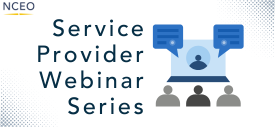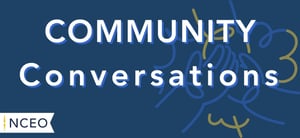SBA Rule Update Affirms Separate ESOP Valuation Not Required
The Small Business Administration (SBA) formally updated its rules for valuation in ESOP transactions, incorporating prior guidance that it no longer requires a separate SBA valuation.
MEMBER EXCLUSIVE VIDEO

SPEAKING OPPORTUNITY
Speaking at our conference is a great way to engage with the employee ownership community and share your unique insights from the perspective of an employee-owner or a service provider professional. The deadline to submit is October 10. Apply today!
April 6 - 9, 2026 | Milwaukee, WI
IN-PERSON MEETING
Are you interested in using an ESOP as an exit plan or employee benefit but unsure where to start? Join us in Baltimore this October for our "Is an ESOP Right for you?" seminar, a one-and-a-half day event for business owners considering their succession planning options. This seminar will cover financing, transaction structure, valuation issues, investing the 1042 rollover, and more, to equip you for employee ownership success.
October 20 - 21, 2025 | Baltimore, MD
NEW SURVEY REPORT
The NCEO's 2025 ESOP Corporate Governance Survey report is now available. Thank you to all 556 respondents for providing valuable data on ESOP company corporate governance practices and policies!
-1.jpg?width=800&height=618&name=2025-ESOP-Corporate-Governance-Report-(1)-1.jpg)
Become an NCEO member to access countless resources and benefits that help you navigate employee ownership. Whether you're considering a transition to employee ownership, administering an existing plan, or providing services in the field, NCEO membership connects you to essential resources and a vibrant community.
The Small Business Administration (SBA) formally updated its rules for valuation in ESOP transactions, incorporating prior guidance that it no longer requires a separate SBA valuation.
The NCEO Forum is known for its interactive workshops, but this year's peer networking sessions revealed something even bigger: when employee-owners and their supporters connect, ideas flow fast and ...
The International Comparative Labor Studies (ICLS) program at Morehouse College announced the Vision and Victory conference, taking place November 12–14 at the Hyatt Regency Atlanta. The national ...
The second annual employee ownership trust (EOT) and perpetual purpose trust (PPT) workshop at the 2025 NCEO Forum in Philadelphia was an incredible gathering of the growing EOT and PPT community. I ...
Drew Mousetis is the executive director of the Tandem Center for Shared Business Success, a nonprofit organization dedicated to helping businesses transition to direct employee ownership. In this ...

How to evaluate and select leaders who will strengthen your employee-owned organization.

Cannabis businesses face unique challenges—ESOPs offer a strategic solution for succession, employee retention, and tax efficiency.

Join us for a concise and impactful discussion on the transformative power of Employee Stock Ownership Plans (ESOPs).


Employee ownership is a term for any arrangement in which a company’s employees own shares in their company or the right to the value of shares in their company. Employee ownership is a broad concept that can take many forms, ranging from simple grants of shares to highly structured plans. The most common form of employee ownership in the U.S. is the employee stock ownership plan (ESOP), a highly tax-advantaged plan in which employees own shares through a trust funded by the company. Other forms of employee ownership include stock options, stock grants, synthetic equity (granting the right to the value of shares but not the shares themselves), worker cooperatives, and employee ownership trusts.
If you wonder if employee ownership might be a good fit for your company, learn more about its different forms in our free booklet Who Should Own Your Business After You?. If you already know an ESOP is the most likely candidate, our prefeasibility toolkit and tax advantage calculator can help you decide next steps. For other forms of employee ownership, visit this table for a side-by-side comparison.
The NCEO and the employee ownership community can help you make the most of your ESOP. Our resource toolkits are a good place to start to learn about best practices in corporate governance, repurchase obligation, financing, and more. You can also use our readymade communications resources and join peer networking groups or leadership cohorts.
We answer common questions about being a participant in an ESOP or you can learn why you might want to work at an employee-owned company. We can also help if you are curious about what the research says or if you are looking for readymade resources to help communicate employee ownership to your coworkers.
If you are already working with employee-owned companies, our toolkits and communications resources can help you support your clients, and our publications and live and online events can keep your knowledge current (and provide continuing education credits!). If you want to learn about the field, start with What is Employee Ownership? or our ESOP prefeasibility toolkit.